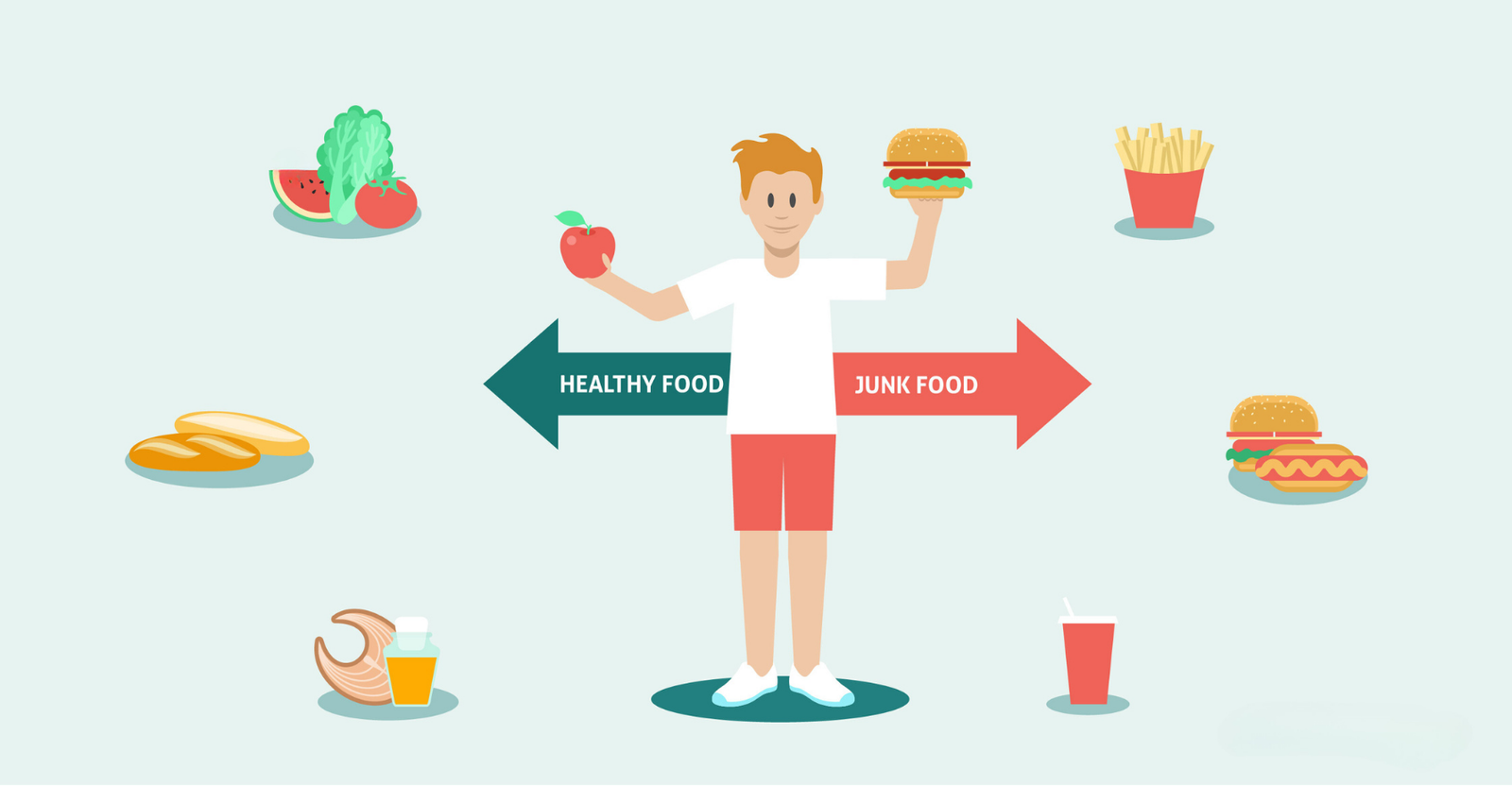
Hey health warriors! Guru Brownricebandit here, ready to shed light on the confusing world of nutrition and guide you towards a more balanced and vibrant life. Feeling overwhelmed by conflicting dietary advice and bombarded with processed food options? You’re not alone! The modern food industry is full of misleading messages, and it’s time to break free from those nutritional myths.
Today, we’ll take a deep dive into the wisdom of Ayurveda, the ancient Indian system of medicine, to unveil the truth about what truly nourishes your body and mind. Let’s debunk 12 common nutritional lies and explore how Ayurveda can help you cultivate a healthier, happier you!
The Deceptive World of Modern Nutrition: Big Food’s Hidden Agenda
Have you ever wondered why those sugary cereals marketed as “perfect breakfasts” leave you feeling sluggish by lunchtime? Or why the “healthy” snacks lining the grocery store aisles are packed with hidden sugars and unhealthy fats? The answer lies in the power of Big Food companies. These corporations spend billions of dollars on marketing campaigns, cleverly manipulating our perceptions of what constitutes a healthy diet. Their primary goal? Profit, not your well-being.
Understanding the Power of Marketing: Big Food utilizes catchy slogans, celebrity endorsements, and attractive packaging to entice us towards processed, often unhealthy, food choices. These companies understand the power of habit formation, and their products are often engineered to be addictive, keeping you coming back for more.
Relearning the Basics: It’s time to re-evaluate everything we thought we knew about nutrition! Many commonly held beliefs, like the necessity of a sugary breakfast or the health benefits of packaged snacks, simply don’t hold true under the scrutiny of Ayurvedic principles.
Ayurveda: Your Guide to Balanced Nourishment
Ayurveda offers a holistic approach to well-being, emphasizing the connection between food, digestion, and overall health. Here are two key Ayurvedic concepts that will be crucial in our journey towards healthier eating:
Understanding Agni: Imagine Agni as your digestive fire. Strong Agni efficiently breaks down food, allowing your body to absorb nutrients and eliminate waste products effectively. Conversely, weak Agni leads to indigestion, fatigue, and imbalances in your system.
The Power of Doshas: Ayurveda identifies three mind-body types known as doshas – Vata (air and space), Pitta (fire and water), and Kapha (earth and water). Understanding your dosha can help you personalize your diet for optimal well-being.
Think of it this way: Just like you wouldn’t wear the same clothes as your friend with a completely different body type, you shouldn’t follow a “one-size-fits-all” dietary approach. Let’s explore how Ayurveda sheds light on the 12 common nutritional myths:
Debunking the 12 Nutritional Lies: Unveiling the Ayurvedic Truth
Myth #1: Breakfast is the Most Important Meal of the Day
- The Ayurvedic Perspective: While breakfast can be a nourishing way to start your day, it’s not necessarily the most important meal. The key lies in prioritizing quality over quantity. If your typical “breakfast” consists of sugary cereals, pastries, or lattes, you’re setting yourself up for a blood sugar crash and sluggishness.
- Ayurvedic Alternatives: Focus on protein and healthy fats to ignite your Agni and provide sustained energy. Think eggs with avocado, a protein smoothie with spinach and berries, or oatmeal with nuts and seeds. Remember, if you’re not a morning person and don’t feel hungry right away, there’s no need to force yourself to eat. Listen to your body’s cues!
Myth #2: The Inner Aisles of Grocery Stores Hold the Key to Nutrition
- The Ayurvedic Perspective: Grocery store aisles are often a minefield of processed foods, cleverly disguised with misleading labels and marketing tactics. These packaged goods are typically high in sugar, unhealthy fats, and artificial ingredients, wreaking havoc on your digestion and overall health.
- Ayurvedic Alternatives: Stick to the outer perimeter of the grocery store, where you’ll find fresh, whole foods. Think colorful fruits and vegetables, whole grains like brown rice or quinoa, legumes like lentils and beans, and high-quality protein sources like fish, chicken, or tofu. These unprocessed foods nourish your body with essential vitamins, minerals, and fiber, promoting healthy digestion and a strong Agni.
Myth #3: Constant Snacking Keeps Your Metabolism High
- The Ayurvedic Perspective: Our modern snacking culture can disrupt your digestive fire (Agni) and lead to imbalances within your body. Constant grazing throughout the day doesn’t allow your digestive system proper time to rest and process food efficiently. This can lead to bloating, gas, and a sluggish metabolism.
- Ayurvedic Alternatives: Focus on mindful eating and prioritize 2-3 larger meals per day. This allows your Agni to work optimally, breaking down food for proper nutrient absorption. If you do experience hunger pangs between meals, opt for healthy snacks like fruits with nut butter, vegetable sticks with hummus, or a handful of nuts and seeds.
Myth #4: Fruit Juices are a Healthy Choice
- The Ayurvedic Perspective: While fruits offer a wealth of vitamins and minerals, fruit juices are a different story. The juicing process removes the fiber, a crucial component for healthy digestion and blood sugar regulation. This leaves you with a concentrated dose of sugar, leading to blood sugar spikes and crashes, leaving you feeling tired and hungry soon after.
- Ayurvedic Alternatives: Enjoy whole fruits instead of juices! The fiber in whole fruits helps you feel fuller for longer and prevents blood sugar spikes. Pair your fruit with a protein source like yogurt or cheese for an even more balanced and satisfying snack.
Myth #5: Vegetable Oils are Healthy
- The Ayurvedic Perspective: Many commercially available vegetable oils are highly processed and can be inflammatory for your body. These oils often undergo high-heat treatments and chemical processes, stripping them of their natural nutrients and creating harmful byproducts.
- Ayurvedic Alternatives: Embrace healthy fats like avocado, ghee (clarified butter), coconut oil, and olive oil for cooking and nourishment. These fats are rich in essential fatty acids and support healthy digestion and overall well-being. Bonus Tip: Opt for cold-pressed olive oil for drizzling and finishing dishes, as high-heat cooking can alter its properties.
Myth #6: Labels Like “Heart-Healthy” or “Natural” are Trustworthy
- The Ayurvedic Perspective: Be wary of marketing buzzwords! Food companies often use terms like “heart-healthy” or “natural” to entice us into buying their products, but these labels don’t always guarantee a healthy choice. Always check the ingredients list and prioritize whole, unprocessed foods over anything with a long list of unrecognizable ingredients.
- Ayurvedic Alternatives: Learn to read food labels like a pro! Focus on products with minimal ingredients and avoid those high in added sugars, unhealthy fats, and artificial additives. Choose whole foods in their natural state whenever possible, and prioritize fresh, seasonal ingredients.
Myth #7: “Low-Fat” is Always a Healthy Choice
- The Ayurvedic Perspective: The “low-fat” craze has led many people to demonize healthy fats, which are crucial for a balanced diet. Many low-fat products are often laden with added sugars, artificial sweeteners, and unhealthy thickeners to compensate for the lack of taste and texture that fat provides. These additives can disrupt your digestion and contribute to weight gain in the long run.
- Ayurvedic Alternatives: Embrace healthy fats like those found in avocados, nuts, seeds, and fatty fish. These fats not only contribute to satiety but also provide essential nutrients like vitamin E and omega-3 fatty acids, which are crucial for brain health, heart health, and overall well-being.
- Think of it this way: Healthy fats are like firefighters, helping to extinguish inflammation in your body. Processed, sugary foods, on the other hand, can stoke the flames of inflammation, leading to a variety of health problems.
Myth #8: The Quality of Your Calories Will Determine the Quality of Your Health, Mood, and Energy
- The Ayurvedic Perspective: While the concept of “calories in, calories out” holds some truth for weight management, it’s not the whole picture. The quality of the calories you consume plays a significant role in how your body feels and functions. Empty calories from processed foods provide little to no nutritional value, leaving you feeling tired, sluggish, and prone to cravings.
- Ayurvedic Alternatives: Focus on nutrient-dense foods! Prioritize whole grains, legumes, fruits, vegetables, and high-quality proteins. These foods provide your body with the essential vitamins, minerals, and fiber it needs for optimal health and sustained energy. Think of it as fueling your body with high-octane fuel instead of low-grade junk.
- Looking for a natural energy boost? Consider incorporating adaptogenic herbs like Ashwagandha or Rhodiola into your routine. These herbs, traditionally used in Ayurveda, can help support your body’s ability to manage stress and promote sustained energy levels.
Myth #9: Caffeine is the End-All Solution for Low Energy
- The Ayurvedic Perspective: While a cup of coffee in the morning can provide a temporary pick-me-up, relying solely on caffeine for energy is unsustainable. Caffeine can disrupt your sleep patterns, exacerbate anxiety, and lead to crashes later in the day.
- Ayurvedic Alternatives: Prioritize a good night’s sleep for optimal energy levels. Ayurveda emphasizes the importance of establishing a regular sleep routine to support your body’s natural sleep-wake cycle. Additionally, incorporate stress-management techniques like yoga or meditation into your daily practice. Chronic stress can deplete your energy reserves, and these practices can help you cultivate calmness and inner peace.
- Bonus Tip: Ayurvedic morning practices like tongue scraping and warm water with lemon can help stimulate your digestive system and promote a more energized start to your day.
- The Ayurvedic Perspective: Protein is the building block of all tissues in your body, and everyone needs adequate protein intake for optimal health. While bodybuilders might require higher protein intakes, aiming for at least 0.75 grams of protein per pound of bodyweight is beneficial for everyone. Protein helps build and maintain muscle mass, supports a healthy metabolism, and keeps you feeling fuller for longer.
- Ayurvedic Alternatives: Explore a variety of protein sources beyond just meat. Lentils, beans, tofu, nuts, seeds, and even some vegetables like quinoa can contribute to your daily protein needs. Considering supplementation? Consult with your healthcare practitioner before adding Creatine to your routine. While some studies suggest potential benefits, it’s important to ensure it’s right for you.
Myth #11: Carbs Aren’t Making You Fat
- The Ayurvedic Perspective: Carbs are not inherently bad! They provide your body with readily available energy for daily activities and workouts. However, the type and quality of carbs you consume make a big difference.
- Ayurvedic Alternatives: Avoid refined carbohydrates like white bread, pastries, and sugary cereals. These carbs lead to blood sugar spikes and crashes, leaving you feeling tired and hungry soon after. Instead, focus on complex carbohydrates found in whole grains like brown rice, quinoa, and oats. These complex carbs provide sustained energy and are packed with fiber, which keeps you feeling fuller for longer and supports healthy digestion.
- Fuel Your Workouts: If you’re physically active, consider incorporating complex carbs around your workouts for optimal energy and recovery. Pair a piece of fruit with nut butter before your workout or enjoy a bowl of brown rice with vegetables after a strenuous activity.
Myth #12: Going Too Low on Carbs and Fats Lowers Testosterone Production in Men
The Ayurvedic Perspective: Extreme dietary restrictions, particularly those very low in carbs and healthy fats, can disrupt hormone production, including testosterone in men. Testosterone plays a crucial role in muscle mass, bone density, and overall energy levels.
Ayurvedic Alternatives: Embrace a balanced diet with a focus on whole foods. Include healthy fats from sources like avocados, nuts, seeds, and olive oil. Incorporate protein sources like lentils, beans, and fish into your meals. These dietary choices can support healthy testosterone levels and promote overall well-being.
Remember: Consult your healthcare practitioner before making any drastic changes to your diet, especially regarding hormonal concerns.
Cultivating a Balanced Ayurvedic Diet
Now that we’ve debunked these common nutritional myths, let’s explore some practical steps for cultivating a balanced Ayurvedic diet:
Focus on Fresh, Whole Foods: Prioritize fresh fruits and vegetables, choosing seasonal options whenever possible. Incorporate whole grains like brown rice, quinoa, and oats into your meals. Embrace legumes like lentils and beans for their protein and fiber content. Choose high-quality protein sources like fish, chicken, and eggs.
Balance is Key: Ayurveda emphasizes the importance of balance in all aspects of life, including diet. Strive for balanced meals that incorporate all six Ayurvedic tastes: sweet, sour, salty, pungent, bitter, and astringent. This promotes optimal digestion and prevents cravings.
Embrace Ayurvedic Spices: Explore the world of Ayurvedic spices like ginger, turmeric, cumin, coriander, and fennel. These spices not only enhance flavor but also possess digestive and health-promoting properties according to Ayurveda.
Consider Ayurvedic Cleansing Practices: Panchakarma is a traditional Ayurvedic detox program designed to cleanse the body and eliminate accumulated toxins. While Panchakarma can be beneficial, it’s crucial to consult with a qualified Ayurvedic practitioner before undertaking this process.
A Final Word: By embracing Ayurvedic principles and shedding misconceptions promoted by modern-day nutrition, you can embark on a journey towards holistic well-being. Nourishing your body with the right foods strengthens your digestive fire (Agni), promotes optimal nutrient absorption, and lays the foundation for vibrant health and a balanced mind. Remember, you are not alone on this journey! Consider consulting with a qualified Ayurvedic practitioner for personalized dietary guidance based on your unique needs and dosha.






No Comments on Shattering Food Myths: Unveiling the Truth About Nourishing Your Body with Ayurveda